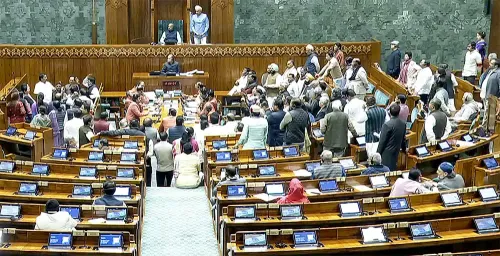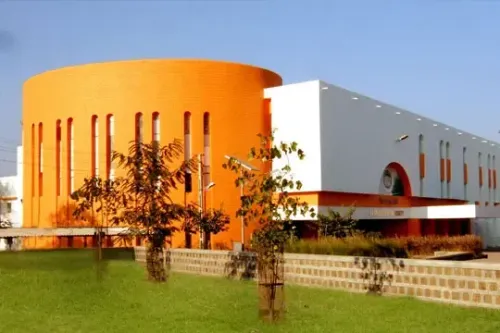Have Over 25 Crore Soil Health Cards Been Distributed to Farmers with Rs 1,706 Crore Released for the Scheme?

Synopsis
Key Takeaways
- Over 25 crore Soil Health Cards issued to farmers.
- Rs 1,706 crore allocated for the initiative.
- Soil mapping completed across 290 lakh hectares.
- 1,987 village-level soil maps developed.
- Regular soil testing every 2 years.
New Delhi, Aug 17 (NationPress) Over 25 crore Soil Health Cards have been issued to farmers (as of July) to encourage the balanced application of fertilizers and enhance soil management nationwide, based on the latest government statistics.
By February 2025, a total of Rs 1,706.18 crore has been allocated to states and Union Territories under the Soil Health Card initiative.
In a significant advancement, the Soil and Land Use Survey of India has conducted extensive soil mapping. This mapping has been finalized at a 1:10,000 scale over approximately 290 lakh hectares, including land in 40 aspirational districts, as per official data.
To assist farmers in utilizing fertilizers effectively, 1,987 village-level soil fertility maps have been developed for 21 states and Union Territories. These maps empower farmers to make informed decisions concerning their soil and crops.
The year 2015 was recognized as the International Year of Soils. It was also when India initiated its pioneering Soil Health Card Scheme on February 19, aiming to evaluate the nutrient status of every farm across the nation.
Prime Minister Narendra Modi officially launched the scheme in Suratgarh, Rajasthan. The initiative aids state governments in delivering detailed reports on soil health to farmers.
These cards provide recommendations for improving soil fertility and encourage farmers to adopt sustainable practices. As of the year 2022–23, the scheme has been incorporated as a component under the Rashtriya Krishi Vikas Yojana, now termed ‘Soil Health and Fertility’.
A Soil Health Card is a printed document issued to farmers for each landholding, reflecting the soil's condition by testing 12 key parameters, which include Nitrogen, Phosphorus, Potassium, Sulphur (Macro-nutrients); Zinc, Iron, Copper, Manganese, Boron (Micro-nutrients); along with pH (Acidity or Basicity), EC (Electrical Conductivity), and OC (Organic Carbon).
The initiative aids farmers in understanding their soil's requirements through regular testing and provides guidance biannually. Each card offers farmers a clear overview of their land's nutrient status and suggests the appropriate amounts of fertilizers, bio-fertilizers, organic inputs, and soil treatments to better care for their soil over time.










